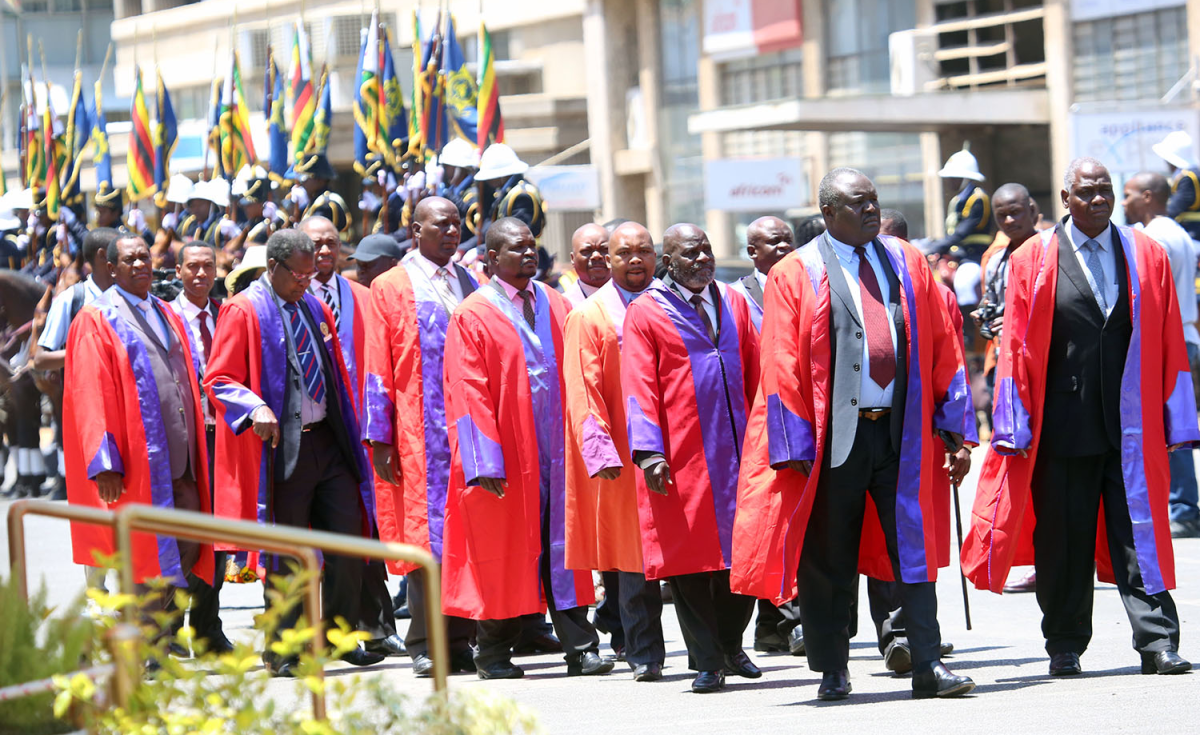Office of the Auditor General has raised concern over the delays by the National Chiefs Council to put in place a policy that will enable girls and women to inherit chieftainships.
Currently, chieftainships have largely been inherited by male children, at the expense of girls, despite the fact that the Zimbabwe constitution encourages gender balance.
Chiefs have 18 seats in the Senates courtesy of Section 44(8) of the Electoral Act [Chapter 2:13] and in terms of Section 120(1)(b) of the constitution of Zimbabwe.
However, there is no female chief among the 18 chiefs that are currently occupying the seats in the Senate in this 10th Parliament of Zimbabwe.
The absence of female chiefs in Senate is a reflection of the small number of females who have managed to inherit chieftainships.
Writing in the Appropriation and Fund Accounts audit report for 2021, the Office of Auditor General said establishing a Gender Policy will help to provide guidance on gender mainstreaming in the National Council of Chiefs.
‘’The National Council of Chiefs did not have a Gender Policy to facilitate in the Girl Child’s right to inherit chieftainship among other issues. The Council was operating with only four female traditional leaders out of 768 traditional leaders.
‘’Section 17 of the Constitution of Zimbabwe Amendment (No. 20) Act 2013, requires the State to promote full gender balance in Zimbabwean society and must take practical measures to ensure that women have access to resources, including land, on the basis of equality with men,’’ said the Report.
However, in its report, the National Chiefs Council indicated that it was in the process of consulting stakeholders on the issue.
‘’Consultations are underway with key stakeholders such as the Chiefs and culture practitioners to give impetus to the crafting of a consensus based Gender Policy for the National Council of Chiefs.
‘’It is our salient position as National Council of Chiefs to fully comply with Chapter 15 of the Constitution of Zimbabwe and the Traditional Leaders Act [Chapter 29:17] and afford equal opportunities for both females and males to become chiefs.
‘’A Gender Policy road-map will be availed in due course once wide consultations with the plethora of stakeholder is completed.’’
According to the Zimbabwe National Statistical Agency (ZimStat), the population size of Zimbabwe as at 20th April 2022 was 15,178,957, of which 7,289,922 (48%) were male and 7,891,035 (52%) were female.
However, despite being the majority in number, women have largely been made to play second fiddle to males, when it comes to occupying positions of authority or decision making.
For example, there are few women compared to males in the Cabinet that was appointed by President Emmerson Mnangagwa after the 2023 general elections.
The Parliamentary Portfolio Committees chairpersons in Parliament are dominated by females, where out of the 22 positions, females are leading in only 4.
There is no female in the country’s Presidium, with President Emmerson Mnangagwa preferring to retain Kembo Mohadi and Constantino Chiwenga.
The 10 Youth Quota seats in the National Assembly which were created through Constitution Amendment No.2, are dominated by females.
To make things worse, Zimbabwe has never had a female Speaker of Parliament since 1980 when it gained its independence.
The highest a woman has gone in Zimbabwe was when Joice Mujuru was appointed Vice President by the late Robert Mugabe, and also when Thokozani Khupe was appointed one of the Deputy Prime Ministers during the inclusive government.
If there are deliberate steps taken, the country might not be able to meet the United Nations targets set on Sustainable Development Goal (SDG) 5 which are seeking to achieve gender equality and empower all women and girls



